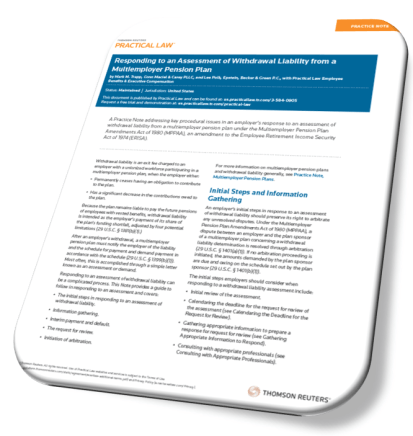By Eric Conn, Mark Trapp, and Darius Rohani-Shukla
Like a bad April Fool’s joke, to advance the Biden Administration’s promise to be “the most labor friendly administration in history,” on April 1, 2024,  OSHA published in the Federal Register its Final Worker Walkaround Representative Designation Process Rule (the “Worker Walkaround Rule”). The new Final Rule amends OSHA’s regulation at 29 CFR 1903.8(c) – Representatives of Employees and Employers – and will profoundly affect employers’ legal risk in future OSHA inspections when it goes into effect on May 31, 2024.
OSHA published in the Federal Register its Final Worker Walkaround Representative Designation Process Rule (the “Worker Walkaround Rule”). The new Final Rule amends OSHA’s regulation at 29 CFR 1903.8(c) – Representatives of Employees and Employers – and will profoundly affect employers’ legal risk in future OSHA inspections when it goes into effect on May 31, 2024.
This Client Alert covers the controversial history of this rulemaking, from an Obama Era Letter of Interpretation and related legal challenges, through the flawed rulemaking process that OSHA followed to promulgate the new rule, to a detailed review of what the final rule says and means, along with analysis about the implications for employers, expected legal challenges to the Rule, and tips and strategies for managing OSHA inspections in this new world order.
Background
OSHA’s regulation governing participation in OSHA inspection by employee representatives, 29 C.F.R. 1903.8(c), was established in 1993, and it granted employees and their representatives the right to accompany OSHA compliance officers during the physical walkaround phase of workplace inspections. In February 2013, the Obama-Biden Administration sought to give union representatives authority to participate in OSHA inspections at non-union workplaces by way of a formal Letter of Interpretation. The interpretation letter responded to an inquiry by a labor union about inspection rights:
“May workers at a worksite without a collective bargaining agreement designate a person affiliated with a union or a community organization to act on their behalf as a walkaround representative?”
That question had to be considered within the context of the existing regulatory text of 29 C.F.R. 1903.8(c) at that time:
“The representative(s) authorized by employees shall be an employee(s) of the employer. However, if in the judgment of the Compliance Safety and Health Officer, good cause has been shown why accompaniment by a third party who is not an employee of the employer (such as an industrial hygienist or a safety engineer) is reasonably necessary to the conduct of an effective and thorough physical inspection of the workplace, such third party may accompany the Compliance Safety and Health Officer during the inspection.”
Notwithstanding pretty clear regulatorylimitations to third party inspection participation rights, including an expectation that any third party participant must have some type of technical credential (e.g., professional safety engineer or certified industrial hygiene), OSHA responded to the union’s interpretation request in the affirmative, explaining: Continue reading






 This article will provide an update in the case of Penske Truck Leasing Co. v. Central States, Southeast and Southwest Areas Pension Plan, 21-cv-05518 (N.D. Ill).
This article will provide an update in the case of Penske Truck Leasing Co. v. Central States, Southeast and Southwest Areas Pension Plan, 21-cv-05518 (N.D. Ill). A recent labor and employment conference held in Big Sky, Montana and attended by many current and former government officials provided a glimpse into several issues that will undoubtedly be subject to reexamination as the new Democrat majority takes control. One interesting panel featured current (Republican) Member John Ring and former (Democrat) Chair Wilma Liebman, moderated by former (Republican) Chair Philip Miscimarra.
A recent labor and employment conference held in Big Sky, Montana and attended by many current and former government officials provided a glimpse into several issues that will undoubtedly be subject to reexamination as the new Democrat majority takes control. One interesting panel featured current (Republican) Member John Ring and former (Democrat) Chair Wilma Liebman, moderated by former (Republican) Chair Philip Miscimarra.